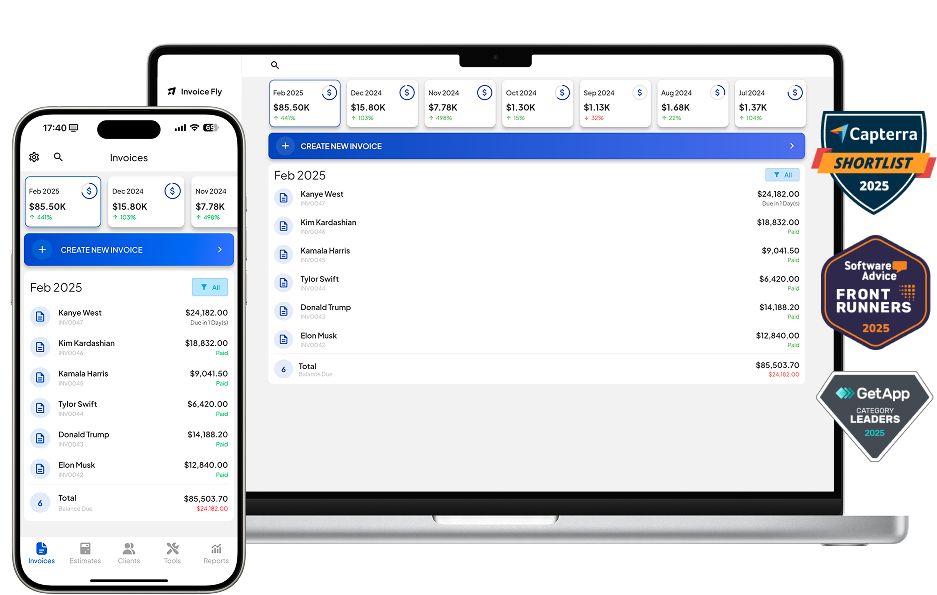- Home
- »
- Glossary Of Terms
- »
- Sales Tax Exemption
What Is A Sales Tax Exemption?
Sales tax exemption certificates are powerful financial tools that can significantly impact your business’s bottom line. Whether you’re a retailer, wholesaler, manufacturer, or service provider, understanding how to properly manage tax exemptions is crucial for maintaining compliance and maximizing profitability.
A sales tax exemption is a legal provision that allows certain purchases to be made without paying sales tax. These exemptions are granted by state and local tax authorities based on either who is making the purchase (entity-based exemptions) or what is being purchased (product-based exemptions).

Types of Sales Tax Exemptions
Sales tax exemptions generally fall into several categories:
Entity-Based Exemptions
- Resale exemptions: When purchasing items for resale to customers
- Nonprofit exemptions: For qualified 501(c)(3) organizations
- Government exemptions: For federal, state, and local government agencies
- Educational exemptions: For qualified schools and educational institutions
- Manufacturing exemptions: For items used in manufacturing processes
Product-Based Exemptions
- Essential items: Food, prescription medications, and certain healthcare items
- Business inputs: Raw materials, component parts, and items used in production
- Agricultural products: Farm equipment, livestock feed, and certain supplies
- Energy exemptions: Utilities and energy used in manufacturing processes
- Technology exemptions: Specific technology purchases in some jurisdictions
Sales Tax Exemption Certificates
The sales tax exemption certificate is the document that validates a tax-exempt transaction. These certificates:
- Provide legal proof of exemption eligibility
- Must be collected and maintained by the seller
- Vary by state in format and requirements
- May be single-use or blanket (covering multiple transactions)
- Must be renewed according to state-specific timelines
The Importance of Managing
Sales Tax Exemptions
Proper sales tax exemption management impacts multiple aspects of your business operations and financial health.
Financial Impact
The financial implications of sales tax exemptions are substantial:
- Cash flow improvement: Reducing tax payments increases available working capital
- Cost reduction: Lower purchase costs for exempt items
- Competitive pricing: Ability to offer more competitive prices to customers
- Audit protection: Reducing financial exposure in case of tax audits
- Penalty avoidance: Preventing costly fines for non-compliance
According to industry research, businesses that properly manage exemption certificates can save between 5-10% on qualifying purchases, which can translate to thousands or even millions of dollars annually depending on business size.
Compliance Requirements
Failing to properly manage exemption certificates creates significant risks:
- Audit penalties: Fines for missing or invalid certificates
- Back taxes: Obligation to pay uncollected taxes plus interest
- Legal consequences: Potential legal issues for tax non-compliance
- Administrative burden: Time-consuming audit processes
- Reputation damage: Public record of tax compliance failures
Key Areas of Sales
Tax Exemption Management
Effective management of sales tax exemptions requires attention to several critical areas:
1. Certificate Collection and Validation
Proper certificate collection practices include:
- Verifying customer eligibility before accepting certificates
- Ensuring certificates are completely and correctly filled out
- Validating certificates against state-specific requirements
- Confirming appropriate signature and date information
- Checking that exemption reasons match the transaction type
2. Certificate Storage and Organization
Best practices for certificate management:
- Implementing secure digital storage systems
- Organizing certificates by customer and expiration date
- Creating backup systems for certificate archives
- Establishing naming conventions for easy retrieval
- Maintaining audit trails of certificate collection
3. Renewal Tracking and Management
Systematic renewal processes should include:
- Monitoring expiration dates for all certificates
- Implementing automated renewal reminder systems
- Establishing clear renewal request procedures
- Documenting renewal history for each customer
- Creating contingency plans for expired certificates
4. Multi-State Compliance
For businesses operating across state lines:
- Understanding varying requirements by jurisdiction
- Managing different certificate formats and information needs
- Tracking different expiration timeframes
- Addressing nexus considerations in multiple states
- Navigating streamlined sales tax (SST) considerations
5. Audit Preparation and Response
Being audit-ready requires:
- Maintaining complete documentation for all exempt transactions
- Creating clear audit response procedures
- Training staff on audit protocols
- Establishing relationships with tax professionals
- Conducting regular internal compliance reviews
Benefits of Automating
Sales Tax Exemption Management
Modern invoicing software like InvoiceFly offers significant advantages for sales tax exemption management:
Efficiency Improvements
Digital solutions provide:
- Automated certificate collection: Streamlined customer submission processes
- Certificate validation: Automatic checking of required fields and information
- Renewal management: Automated tracking and notification of expiring certificates
- Multi-state compliance: Built-in rules for different jurisdictional requirements
- Integration with invoicing: Seamless application of exemptions during billing
Risk Reduction
Technology reduces exemption-related risks through:
- Compliance verification: Automatic checking against current regulations
- Certificate validation: Ensuring all required information is present
- Error prevention: Reducing manual data entry mistakes
- Audit trails: Complete history of all certificate activities
- Centralized storage: One secure location for all documents
Comparative Analysis: Manual vs. Automated Exemption Management
| Aspect | Manual Process | Automated Solution (like Invoice Fly) |
|---|---|---|
| Time Required | 15-30 minutes per certificate | 2-5 minutes per certificate |
| Error Rate | 5-10% of certificates contain errors | Less than 1% error rate |
| Storage Method | Physical files or basic digital folders | Secure, searchable database |
| Renewal Tracking | Manual calendar reminders | Automated notifications |
| Multi-State Compliance | Requires extensive knowledge | Built-in state-specific rules |
| Audit Readiness | Hours or days to compile records | Instant access to all certificates |
| Customer Experience | Often cumbersome paper processes | Smooth digital submission |
How to Measure and Manage
Sales Tax Exemptions
Implementing an effective sales tax exemption strategy involves several key practices:
Establishing KPIs for Exemption Management
Track these metrics to measure efficiency:
- Certificate completion rate: Percentage of transactions with proper documentation
- Renewal success rate: Percentage of certificates renewed before expiration
- Processing time: Average time to collect, validate, and store certificates
- Compliance rate: Percentage of certificates meeting all requirements
- Cost savings: Total tax savings from properly managed exemptions
Best Practices for Sales Tax Exemption Management
For Sellers Accepting Exemption Certificates
- Implement clear certificate collection procedures at point of sale
- Train staff on proper certificate validation
- Create a systematic approach to certificate organization
- Develop regular internal audit processes
- Use technology solutions for certificate management
For Buyers Using Exemption Certificates
- Maintain current certificates with all vendors
- Track certificate expiration dates
- Keep detailed records of exempt purchases
- Understand jurisdiction-specific requirements
- Promptly provide updated certificates when needed
Implementing Digital Exemption Certificate Solutions
For successful technology adoption:
- Select appropriate software: Choose solutions like InvoiceFly that offer comprehensive exemption certificate features
- Train team members: Ensure all staff understand the digital process
- Create standard procedures: Develop consistent protocols
- Integrate with existing systems: Connect with accounting and ERP platforms
- Monitor performance: Regularly assess efficiency improvements and compliance rates
FAQs about Sales Tax Exemptions
If you cannot produce a valid exemption certificate during an audit, the tax authority will typically assess the uncollected sales tax plus interest and penalties. These penalties can range from 10-25% of the tax due, plus interest that may compound daily.
In most states, you'll have a limited window (often 60-90 days) to obtain a valid certificate retroactively, though this doesn't always eliminate penalties. Using digital certificate management systems like those integrated with InvoiceFly can significantly reduce this risk.
When a customer's exemption certificate expires, you must begin charging sales tax on their purchases until they provide a renewed certificate. There is no grace period in most jurisdictions. The best practice is to implement a proactive renewal program that alerts customers 30-60 days before expiration.
For key accounts, assign specific team members to manage the renewal process. Many businesses use automated systems to track expirations and trigger renewal workflows.
This depends on the specific states involved. Some states accept out-of-state certificates, particularly if they participate in the Streamlined Sales Tax (SST) program, while others require their own state-specific forms.
Multi-state sellers should maintain a reference guide of state-specific requirements and use certificate management software that can validate certificates against each state's rules. As a general rule, collecting the certificate from the state where the sale is sourced for tax purposes is the safest approach.
Resale certificates specifically document that items are being purchased for resale, making them exempt from sales tax at the wholesale level. General exemption certificates cover other types of exemptions, such as nonprofit status or manufacturing use.
The key difference is the intended use of the purchased items. Resale certificates require the buyer to collect and remit sales tax when they eventually sell the item to end users, while other exemption types may not involve any future tax collection. Many states use different forms for each type.
Start by checking the certificate for completeness, including tax ID numbers, proper signatures, and expiration dates. Many states offer online verification tools where you can confirm tax ID validity. For nonprofit exemptions, you can verify 501(c)(3) status through the IRS Tax Exempt Organization Search.
For large or unusual orders, consider additional verification steps such as business license checks or direct contact with the tax authority. Remember that accepting a fraudulent certificate can leave your business liable for the uncollected tax.

Other Free Resources

Try Invoice Fly Today
- Send quotes & invoices in seconds
- Collect card & online payments
- Receive instant notifications
- Win more jobs

